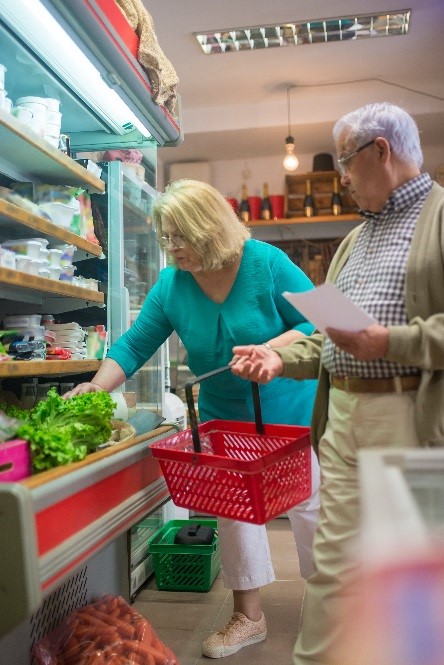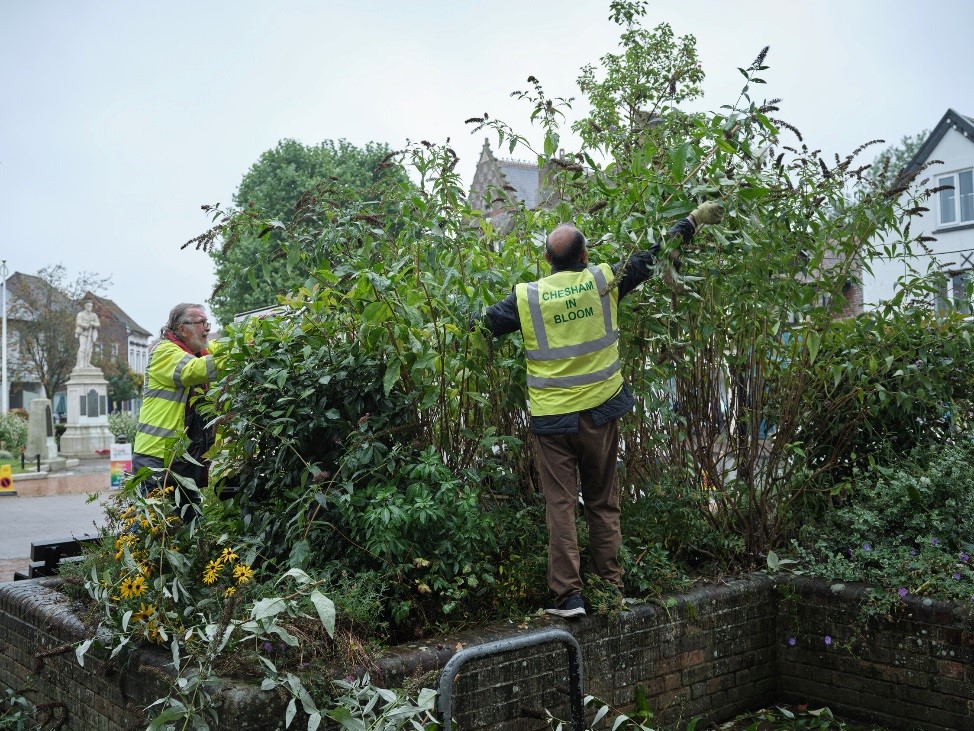Filges, T, Siren, A, Fridberg, T, Nielsen, BCV. Voluntary work for the physical and mental health of older volunteers: A systematic review. Campbell Systematic Reviews. 2020; 16:e1124. https://doi.org/10.1002/cl2.1124
Picture this…
Rodney is 65. He recently retired from his job as a teacher and has been re-discovering his passion for photography. Nonetheless he has been finding the transition into retirement difficult. Rodney loved his job and he feels that he now lacks a sense of purpose. He has been feeling low, misses having a routine and finds that some days his only meaningful conversation is with his cat. Rodney has noticed a group of people litter picking on Saturday mornings in his town and is wondering whether he should consider volunteering to help them.
.jpg)
Credit: David Henry from Pexels
Summary messages –
- Volunteering improves the mental and physical health of volunteers.
- The strongest evidence is for the benefits of volunteering on mortality.
- Studies took place in a range of countries including Ireland, Israel, Japan and the United States, included men and women and spanned the time period 1984 to 2013, which increases the certainty of the research.
What the research says –
The World Health Organisation Decade of Healthy Ageing Baseline report defines healthy ageing as the process of developing and maintaining the functional ability that enables wellbeing in older age. Functional ability combines a person’s physical and mental capabilities with the environment they live in and how they interact with their environment. The ability to contribute to society, for example by assisting friends, mentoring younger people or volunteering, is an important element of functional ability. Furthermore, volunteering has been proposed by many governments around the world as a way to engage people in their local communities, which provides volunteers with personal enrichment and the societal value of the services provided by the volunteers. During the pandemic, we’ve seen many examples of older people contributing to society through volunteering whether it be retired health care professionals lending their expertise in the mass vaccination campaign or community volunteers delivering food and prescriptions to house-bound neighbours.

Credit: Kampus Productions from Pexels
This systematic review published by the Campbell Library in October 2020, identified 90 studies that looked at the impact of formal volunteering by people aged over 65 on their physical and mental health. Formal volunteering was defined as voluntary, on-going, planned, helping behaviour that intend to increase the well-being of strangers, offers no monetary compensation and typically occurs within an organisational context.
The review authors were able to summarise the evidence from 26 studies carried out in Australia, Ireland, Israel, Japan, Korea and the USA, which involved over 47,000 volunteers. The evidence from 10 studies indicates that volunteering may have a positive effect on reducing mortality. The evidence in this review suggests that as a volunteer you are less likely to die than someone who does not volunteer. If volunteering had no effect on mortality, we would expect an equal 50% chance of dying first for people who volunteer and for those who don’t In fact, there is a 43% chance of volunteers dying compared with those who don’t volunteer. There was little evidence of variation in the results between studies which gives us confidence in this finding. Three of the studies looked at the impact of volunteering on depression and overall there was a small positive effect. However, the review authors felt that there were too few studies to be confident about this result. None of the studies reported any negative effects of volunteering.
Although the review authors found 90 research studies about the effects of volunteering on older people there were issues with the design of many of the studies. Some did not consider other factors which may have had an impact on the health and wellbeing of the older people at the same time as their volunteering activity. Others, did not include a comparison with people who didn’t volunteer. Both these aspects of study design make it difficult to tease out whether any changes in mental or physical health were a result of volunteering or something else and hence the review authors were not able to use the data from these studies. Bearing in mind how many people take part in volunteering activities and report feeling better as a result, it is disappointing that there is so little evidence available about the impact of volunteering on mental health.
Although formal volunteering opportunities are widespread in many countries around the world, people who are less well off or have health concerns are much less likely to be able to contribute their time and talents than those who are wealthier and healthier. The Centre for Ageing Better and the Department for Digital, Culture, Media and Sport produced a report in October 2018 on age friendly and inclusive volunteering which contains useful guidance to support organisations working with volunteers to engage with a wider range of people including the over 50s.

Credit: Matt Writtle Ageing Better Age Positive Image Library
Where is Rodney now…
Rodney is now volunteering on a regular basis with the Keep Our Town Tidy group. As well as litter picking they also spend time tidying up the community garden areas in the town. He enjoys having a regular commitment in his diary and has met lots of interesting people.
Jo Thompson Coon
Co-Director, Cochrane Campbell Global Ageing Partnership
Editor, Ageing Co-ordinating Group, Campbell Collaboration
University of Exeter
Please note: the stories and pictures used do not represent specific individuals – they are merely utilised to contextualise the data into a more digestible format.
Reference points –
Filges, T, Siren, A, Fridberg, T, Nielsen, BCV. Voluntary work for the physical and mental health of older volunteers: A systematic review. Campbell Systematic Reviews. 2020; 16:e1124. https://doi.org/10.1002/cl2.1124
Decade of healthy ageing: baseline report. Geneva: World Health Organization; 2020. Licence: CC BY-NC-SA 3.0 IGO.
Jopling K and Jones D Age-friendly and inclusive volunteering: Review of community contributions in later life 2018; Centre for Ageing Better
If you have any comments regarding this blog post, please contact us at globalageing@cochrane.org. We would love to hear your thoughts and answer any questions you may have.
Web editor: Monserrat Conde
